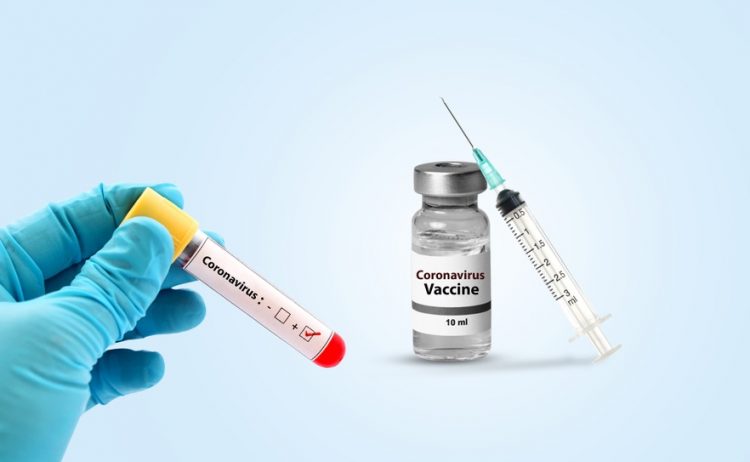COVID-19 Vaccine Updates: SARS-CoV-2 Infection Could Be Prevented By A Lab Engineered RNA Virus
Source: COVID-19 Vaccine Updates Apr 08, 2020 5 years, 2 weeks, 4 days, 10 hours, 26 minutes ago
COVID-19 Vaccine Updates: To date, no vaccines exists that safeguard individuals against infections by the various coronaviruses, including SARS-CoV-2, which causes the COVID-19 disease, or the ones that cause SARS and MERS. As COVID-19 continues to wreak havoc, many research laboratories around the world have developed a targeted focus on understanding the virus and finding the best strategy for halting and eradicating it.

A team of interdisciplinary researchers that had worked a promising vaccine candidate against the MERS virus suggest that the approach they took for a MERS virus vaccine may also work against SARS-CoV-2. The vaccine’s delivery method is an RNA virus called parainfluenza virus 5 (PIV5), which is believed to cause a condition known as kennel cough in dogs but appears harmless to human. The medical researchers added an extra gene to the virus so that infected cells would produce the S, or spike, glycoprotein known to be involved in MERS infections and also in the SARS-CoV-2 mode of infections.
Pediatric pulmonologist and coronavirus expert Dr Paul McCray, M.D., at the University of Iowa, in Iowa City, who co-led the new study with virologist Dr Biao He, Ph.D., at the University of Georgia, in Athens told Thailand Medical News, “We know people have been exposed to PIV5, but it seems to be an innocuous virus in humans. PIV5 doesn’t seem to cause a cytopathic effect.”
Typically, the MERS virus cannot replicate in mice, so to test the vaccine Dr McCray developed a mouse model that mimics human infections. The mice had been genetically engineered to express DPP4, the protein used by the MERS virus as an entry point for human cells.
Research studies showed that a single dose of the vaccine, given intranasally, effectively caused infected cells to produce the S protein, which in turn triggered immune responses against the protein in the animal host.
28 days after the mice received the vaccine, they were exposed to a strain of the MERS virus, adapted to the mice to cause a lethal infection. The MERS virus was also given to groups of mice that had received a different PIV5 vaccine ie one without the genes for the S protein or rather an intramuscular vaccine with inactivated MERS virus.
It was observed that all the mice immunized with the modified PIV5 virus survived MERS virus infection. In contrast, all the mice immunized with the PIV5 without S died from the infection. The intramuscular vaccine of inactivated MERS virus only protected 25% of the mice from a lethal infection.
However, the mice that received inactivated MERS virus showed above-average levels of eosinophils, white blood cells that indicate infection or inflammation. This connection raises a safety concern for inactivated MERS virus as a potential vaccine.
The research demonstrates that an intranasal, PIV5-based vaccine is effective against MERS in mice, said He, and should be investigated for its potential against other dangerous coronaviruses, including SARS-CoV-2.
Dr McCray, who has also investigated similar strategies as a way to treat cystic fibrosis commented, “We’re quite interested in using viruses as gene delivery vehicles,”
Just like colleagues around the world, now Dr McCray and He have both focused their research efforts
on SARS-CoV-2, taking a similar tack to working with mouse models of infection and testing vaccines.
Developing an effective vaccine against the coronavirus that causes COVID-19 is a race against time.
Dr McCray further added, “One hundred percent of the population is not going to be exposed to the virus the first time around, which means there will be more people to infect when it comes again. We don’t know yet if people get lasting immunity from the SARS-CoV-2 infection, so it’s important to think about ways to protect the population.”
For the latest updates about
COVID-19 Vaccine Updates, keep on logging on to
Thailand Medical News
KINDLY HAVE HEART AND HELP! Please help support our site and our initiatives to propel and aid research by making a donation to help sustain the site. Donations are accepted via paypal: https://www.thailandmedical.news/p/sponsorship
